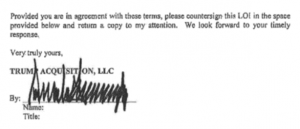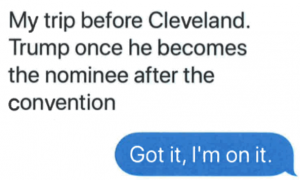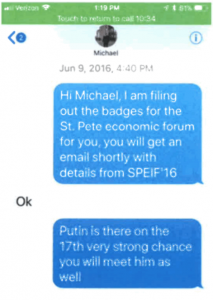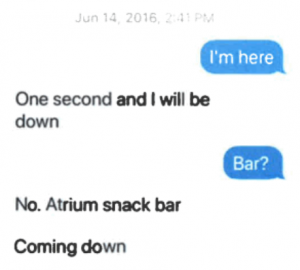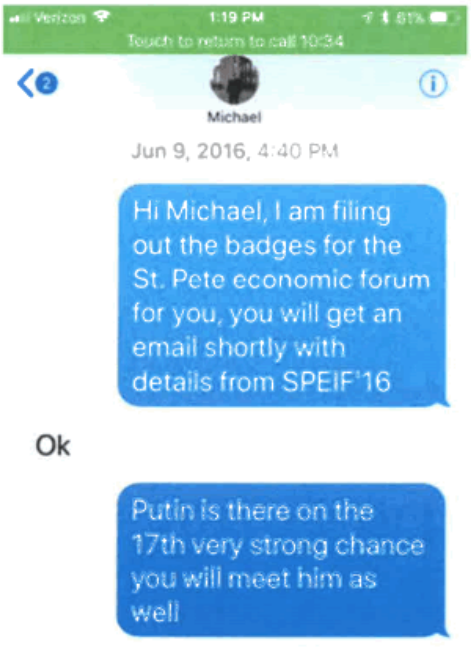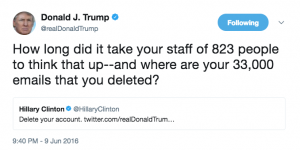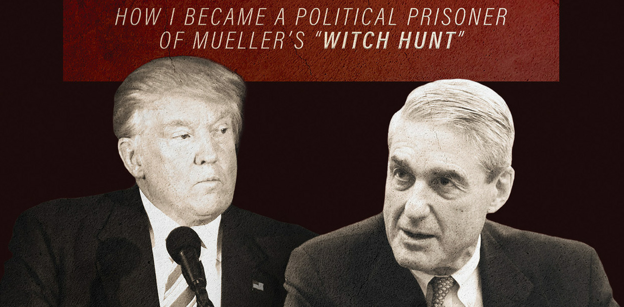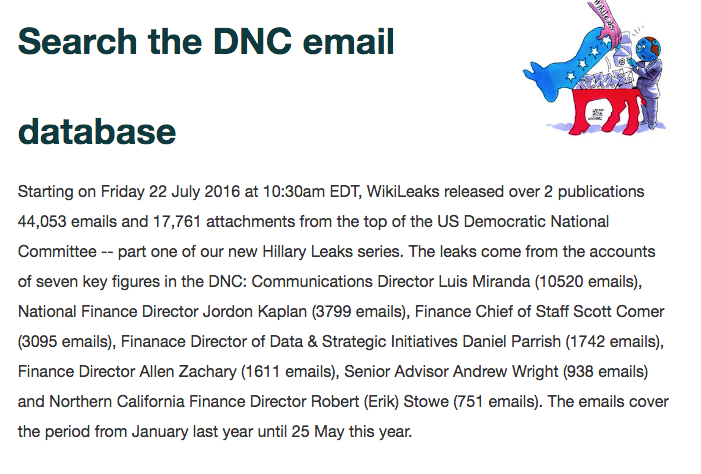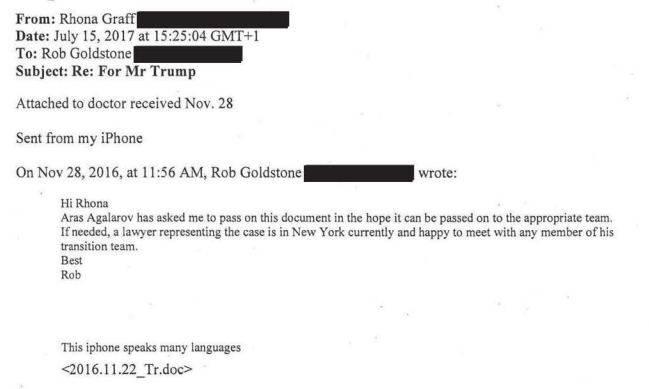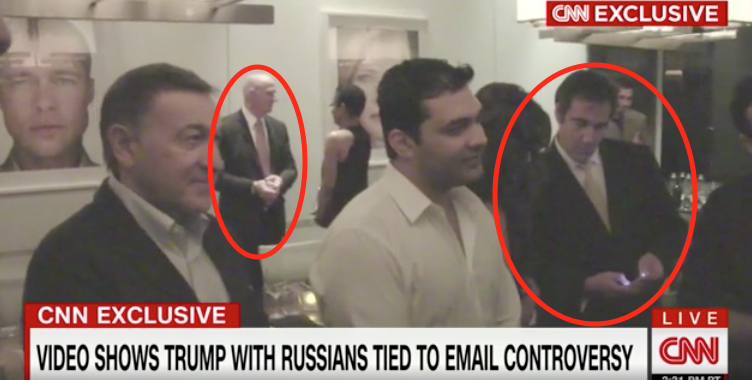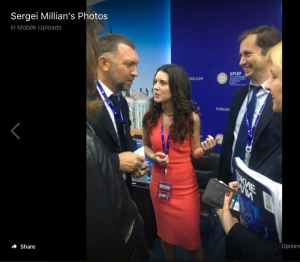Quid Pro Quo Redux, Part One: The Trump Tower Dangle
Last May, I wrote a series using the questions (as imagined by Jay Sekulow) Mueller had posed to Trump to lay out what theory of investigation Mueller might be pursuing — and what details we know about it. We’ve learned a lot more about the investigation and confirmed that the investigation focusing on Trump personally includes both a criminal and a counterintelligence component. I wanted to update the series. Because we know so much more about both sides of this quid pro quo, the organization of the series will be somewhat different.
November 9, 2013: During a 2013 Trip To Russia, What Communication and Relationships Did You Have with the Agalarovs and Russian Government Officials?
On November 9, 2013, Aras Agalorov helped Trump put on Miss Universe in Moscow; Trump Tower meeting attendees Rob Goldstone and Ike Kaveladze were both involved, as were Don Jr, Michael Cohen, and Keith Schiller. If the pee tape — or any kompromat involving “golden showers,” as Jim Comey claims Trump called it — exists, it was made on November 8, 2013.
The prior trip set up the 2016 quid pro quo in several ways. First, it deepened Trump’s desire for a Moscow Trump Tower — an effort the Agalrovs and Trumps pursued for years after the meeting. It established Trump’s enthusiasm for Vladimir Putin — though Putin reportedly disappointed Trump’s desire for a meeting on that prior occasion. It also introduced Trump to a bunch of other oligarchs.
Just after Trump kicked off his presidential bid, Emin invited Trump to his father’s birthday party in Moscow on November 8 (PDF 17), the first of a series of outreaches during Trump’s campaign which would continue through the election. The Agalarovs would remain the key handlers of the Trump family until shortly after the election, when first Sergei Kislyak, then Putin himself, would take over interacting with Trump and his family.
September 25, 2015 to November 2016: What Communication did you have with Michael D. Cohen, Felix Sater, and others, including foreign nationals, about Russian real estate developments during the campaign
By September 25, 2015, Felix Sater and Michael Cohen already had a Moscow design study completed for a Trump Tower in Moscow. Days later, Andrey Rozov was promising to build Donald Trump the tallest tower in Europe. In October 2015, Felix Sater (whose actions in brokering this deal seemed designed to ensure that Trump’s willingness to work with Russian military intelligence and sanctioned banks would leave a digital paper trail) started pitching the centrality of Putin to the deal. On October 28, at a time when his presidential bid was meeting unexpected success, Trump signed a Letter of Intent on a deal that stood to make him a fantastic sum of $300 million.
In the days after getting the signed letter of intent and in response to Trump publicly complimenting Putin at a press conference, Sater bizarrely tied the deal to getting Trump elected. He claimed to believe that if Putin complimented Trump’s deal-making prowess at a press conference tied to a then hypothetical Trump trip to Moscow, it would help Trump’s election chances.
Michael my next steps are very sensitive with Putins very very close people, we can pull this off. Michael lets go. 2 boys from Brooklyn getting a USA president elected.
Sater first tried to get commitments for both Cohen and Trump to travel to Moscow (with the documents to prove it) in December 2015. While Cohen was willing to share his passport, he held off on Trump’s. Perhaps as a result of Cohen’s increasing impatience with Sater’s swapping out a lightly sanctioned bank for a more compromising one, Cohen said he wanted to take more control. That led to him to reach out to Dmitry Peskov directly (who had been involved in Trump’s efforts to meet Putin in 2013), which in turn led him to have a 20 minute call with Peskov’s personal assistant on January 21, 2016. Over the course of that conversation, she would have taken notes recording Cohen committing to Trump’s willingness to work through a former GRU officer and with sanctioned banks to get his $300 million deal. By the next day, Putin’s office had that in hand, the first of many receipts he would obtain on Trump, making him susceptible to compromise regardless of what happened.
Cohen smartly shifted negotiations to the encrypted communication app Dust for a time. But when Sater renewed discussions about a trip to Russia to make this happen in May 2016, he did so on texts that would be accessible to law enforcement. And Cohen made it clear Trump had to seal the nomination before he would risk making his coziness with Putin public, making it crystal clear that the election and the Trump Tower deal remained linked in his brain.
Both Trump and Don Jr were thoroughly briefed on these negotiations. That means when Don Jr accepted a meeting offering dirt on Hillary as part of Russia’s support for Trump, he would have known that a $300 million real estate deal might depend on taking the meeting. Don Jr took the June 9, 2016 meeting and — per four sworn witnesses’ statements — agreed to revisit Magnitsky sanctions if his father won.
At almost exactly the moment that meeting broke up, Felix Sater texted Cohen to take the next step on a deal, a trip for him to St. Petersburg, potentially to meet with Putin personally. Oleg Deripaska and Sergei Millian (the latter of whom Cohen had also worked with in the past) would also have been at the event.
In the days after the Trump Tower meeting, Sater and Cohen were scrambling to put together the trip to St. Petersburg at the last minute. But they looked like they would pull it off, only to have the WaPo report, on June 14, 2016, that Russia hacked the DNC postpone the plans for the trip.
That said, Cohen only said, “he would not be traveling at that time.” The news that Russia hacked Trump’s opponent didn’t kill the deal. It just made it more difficult.
On July 22, 2016 — the day that WikiLeaks released the DNC emails — George Papadopoulos (possibly with the coaching of Ivan Timofeev) and Sergei Millian seem to have picked up keeping discussions of a deal alive from Cohen and Sater.
According to the President’s current teevee lawyer, Trump answered Mueller’s questions on this topic to allow for the possibility that the Russian deal remained active through November. He’s just not committing to any story about how long the deal remained (or remains) active.
One thing to remember about this Trump Tower deal. The deal was too good to be true (and to some degree that’s the point!). But it fed all of Trump’s character weaknesses. The promise of having the tallest tower in Europe would feed Trump’s narcissism. The fairly ridiculous claim Trump Organization stood to make $300 million off of it would have been irresistible to the highly indebted family.
And in exchange for that, Trump showed repeated and sustained willingness to deal with GRU-tied individuals and sanctioned banks. And at the June 9 meeting, his spawn made it clear he’d trade policy considerations to get the deal.
As I disclosed last July, I provided information to the FBI on issues related to the Mueller investigation, so I’m going to include disclosure statements on Mueller investigation posts from here on out. I will include the disclosure whether or not the stuff I shared with the FBI pertains to the subject of the post.
RESOURCES
These are some of the most useful resources in mapping these events.
Mueller questions as imagined by Jay Sekulow
CNN’s timeline of investigative events
Jim Comey March 20, 2017 HPSCI testimony
Comey May 3, 2017 SJC testimony
Jim Comey June 8, 2017 SSCI testimony
Jim Comey written statement, June 8, 2017
Sally Yates and James Clapper Senate Judiciary Committee testimony, May 8, 2017
NPR Timeline on Trump’s ties to Aras Agalarov
George Papadopoulos statement of the offense
Mike Flynn statement of the offense
Mike Flynn cooperation addendum
Peter Strzok 302 (describing Flynn’s interview)
Michael Cohen statement of the offense
Internet Research Agency indictment
Senate Judiciary Committee materials on June 9 meeting
BuzzFeed documents on Trump Tower deal
Text of the Don Jr Trump Tower Meeting emails


